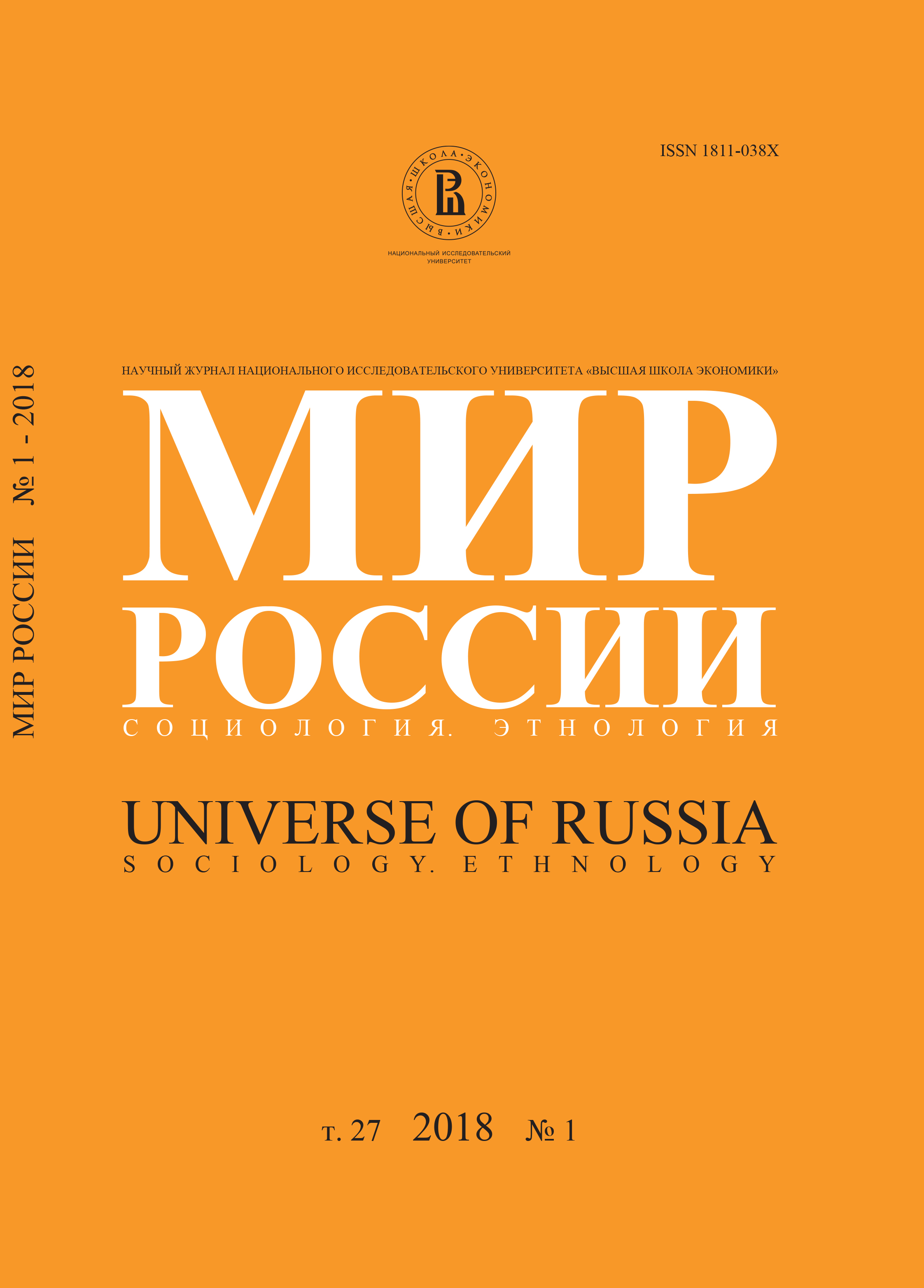The Key Meanings of the Lifeworld of Rural Residents in Russia
Abstract
Zhan Toshchenko – Corresponding Member of the Russian Academy of Sciences, Doctor of Science in Philosophy, Head of Department of Theory and History of Sociology of the Russian State University for the Humanities; Chief Researcher, Institute of Sociology of the Russian Academy of Sciences. Address: bldg. 5, 24/35, Krzhizhanovskogo St., Moscow, 117218, Russian Federation. E-mail: zhantosch@mail.ru
Pyotr Velikiy – Doctor of Science in Philosophy, Leading Researcher, Institute of Agrarian Problems of the Russian Academy of Sciences. Address: 94, Moskovskaya St., Saratov, 410012, Russian Federation. E-mail: iagpran@mail.ru
Citation: Toshchenko Zh., Velikiy P. (2018) The Key Meanings of the Lifeworld of Rural Residents in Russia. Mir Rossii, vol. 27, no 1, pp. 7–33 (in Russian). DOI: 10.17323/1811-038X-2018-27-1-7-33
This article reveals the key meanings of the lifeworld of the inhabitants of a modern Russian village. Our methodological framework is the sociology of life that treats the lifeworld of people as the central concept, whose structural components include social consciousness, behavior and objective conditions (macro-, meso- and micro-world). This approach allows the disclosure of the entire palette of social and personal lives. Particular attention is paid to the justification of the notion of the meaning of life in sociological research. The notion is defined as the goals and principles that guide individuals in their everyday life. Proceeding from these theoretical and methodological grounds, the lifeworld of rural residents is revealed through its key meanings reflected in the main value orientations and the corresponding motivation: to remain in the village; to move from village to town; compromise attitudes (to live in the countryside, but work and/or relax in the city). All of these meanings subordinate to a generalized meaning of the desire for social justice, which relates to the specificity of villagers’ lives as citizens (the level of society), as residents (the level of settlement) and as individuals (the level of immediate environment). All these value orientations are also dependent on social status, age, attitude to land use (or forms of property), and marital status. The analysis is based on data collected 2014-2016 by a team of researchers from the Russian State University for Humanities (RGGU) under a grant from the Russian Science Foundation “The lifeworld of Russians and the evolution of the forms of their participation in the implementation of state and social transformations (1990-2010)”. Auxilary information from a variety of other sources is used: the Federal State Statistics Service, the Institute of Sociology of the Russian Academy of Sciences, VCIOM, Levada-Center and several regional research organizations.






